Tesla CEO gaining support for fast train tunnels: Elon Musk’s The Boring Company received approval from the White House to build a series of tunnels that could run from New York City to 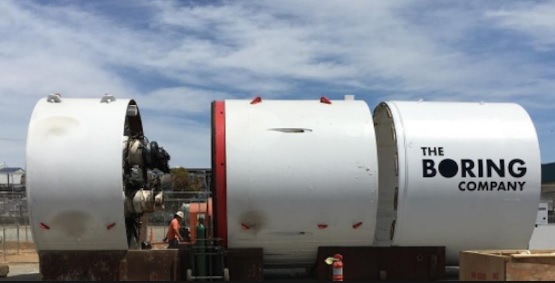 Washington, D.C. “Just received verbal govt approval for The Boring Company to build an underground NY-Phil-Balt-DC Hyperloop. NY-DC in 29 mins,” he tweeted yesterday. He later tweeted out that formal approval with the Trump administration is still needed, but after discussions they’ve had, he’s confident the project will be able to move forward. That could bring fast Hyperloop-like trains to Los Angeles and important transport routes on the east coast.
Washington, D.C. “Just received verbal govt approval for The Boring Company to build an underground NY-Phil-Balt-DC Hyperloop. NY-DC in 29 mins,” he tweeted yesterday. He later tweeted out that formal approval with the Trump administration is still needed, but after discussions they’ve had, he’s confident the project will be able to move forward. That could bring fast Hyperloop-like trains to Los Angeles and important transport routes on the east coast.
Freight haulers ask feds to keep SmartWay: Major freight shippers, including Walmart, are asking U.S. House and Senate appropriations committees to restore funding for the voluntary SmartWay clean trucking program. Like several clean transportation programs, it had been cut from the Trump administration’s 2018 federal budget proposal. SmarWay has been working with freight haulers to save an estimated eight billion gallons of fuel and significantly reduce diesel trucks’ emissions of NOx and carcinogenic fine particulate matter. The coalition of companies said in a July 14 letter that the program has saved companies about $27.8 billion in fuel costs since it started in 2004.
Chrysler Pacifica plugging into California: Chrysler is marketing its Pacifica minivan as a hybrid – and not what it really is, a plug-in hybrid – in every state except California. The Fiat Chrysler  Automobiles division is concerned that most U.S. consumers will be confused or concerned about having to charge for the first time and be subject to range anxiety. Plugging in is less of a worry in California, which has made up about half of U.S. plug-in vehicle sales. Still, it is possible to occasionally see Chrysler billboard ads in the state that only identify the Pacifica as a hybrid.
Automobiles division is concerned that most U.S. consumers will be confused or concerned about having to charge for the first time and be subject to range anxiety. Plugging in is less of a worry in California, which has made up about half of U.S. plug-in vehicle sales. Still, it is possible to occasionally see Chrysler billboard ads in the state that only identify the Pacifica as a hybrid.

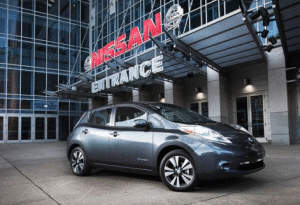 electric car. Flipping a switch turns the accelerator into an e-Pedal, where you get to accelerate, decelerate, and stop the car all on one pedal. That will include driving on hills, and will ease some of the burden of being stuck in traffic – with 90% of driving needs now being met on one pedal. The new feature comes from Nissan Intelligent Mobility, which is dedicated to transforming how cars driven, powered and integrated into society. More will be revealed on e-Pedal, along with several other interesting changes, during the new Leaf launch in September.
electric car. Flipping a switch turns the accelerator into an e-Pedal, where you get to accelerate, decelerate, and stop the car all on one pedal. That will include driving on hills, and will ease some of the burden of being stuck in traffic – with 90% of driving needs now being met on one pedal. The new feature comes from Nissan Intelligent Mobility, which is dedicated to transforming how cars driven, powered and integrated into society. More will be revealed on e-Pedal, along with several other interesting changes, during the new Leaf launch in September.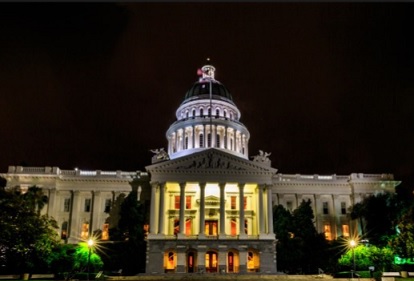 through when eight Republicans broke ranks and joined with Democrats to continue the program that came from AB 32; it requires companies to buy permits to release greenhouse gases into the atmosphere. Gov. Jerry Brown has been committed to adding the bullet train from Los Angeles to San Francisco, and bringing more electric vehicles and infrastructure to the state. Sources say there’s already more than $200 million available through the cap-and-trade auctions, now in their fifth year, that can go toward alternative fuels and infrastructure in the state.
through when eight Republicans broke ranks and joined with Democrats to continue the program that came from AB 32; it requires companies to buy permits to release greenhouse gases into the atmosphere. Gov. Jerry Brown has been committed to adding the bullet train from Los Angeles to San Francisco, and bringing more electric vehicles and infrastructure to the state. Sources say there’s already more than $200 million available through the cap-and-trade auctions, now in their fifth year, that can go toward alternative fuels and infrastructure in the state. renewables and energy storage are well positioned to continue seeing strong growth. State-level policies have been drivers and will continue. Renewable fuels are most vulnerable to Trump’s agenda. “With uncertainty looming and the administration continuing to consider oil-and gas-friendly policies, Trump’s decision to remove the renewable fuel obligation could alter a decade-old ethanol industry,” the report said.
renewables and energy storage are well positioned to continue seeing strong growth. State-level policies have been drivers and will continue. Renewable fuels are most vulnerable to Trump’s agenda. “With uncertainty looming and the administration continuing to consider oil-and gas-friendly policies, Trump’s decision to remove the renewable fuel obligation could alter a decade-old ethanol industry,” the report said.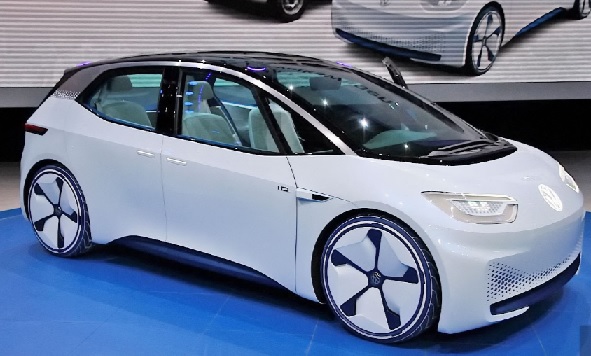 VW’s Chief of Corporate Strategy Thomas Sedran said in an interview with German site Automobil Produktion that the starting price for an ID will be down to $27,000 before incentives – $8,000 cheaper than the $35,000 Model 3. That will still take a while as the German automaker’s ID portfolio is still in the early development phase; it will take a few years for the first one to show up at dealerships.
VW’s Chief of Corporate Strategy Thomas Sedran said in an interview with German site Automobil Produktion that the starting price for an ID will be down to $27,000 before incentives – $8,000 cheaper than the $35,000 Model 3. That will still take a while as the German automaker’s ID portfolio is still in the early development phase; it will take a few years for the first one to show up at dealerships.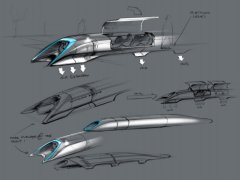 the next few weeks, the startup said. Inspired by Tesla CEO Elon Musk in 2013, Los Angeles-based Hyperloop One is ready to take the pod transport through vacuum tubes in what could someday be a very fast ride between San Francisco and LA. The goal is to reach 250 miles per hour, which would shorten the car trip quite a bit.
the next few weeks, the startup said. Inspired by Tesla CEO Elon Musk in 2013, Los Angeles-based Hyperloop One is ready to take the pod transport through vacuum tubes in what could someday be a very fast ride between San Francisco and LA. The goal is to reach 250 miles per hour, which would shorten the car trip quite a bit.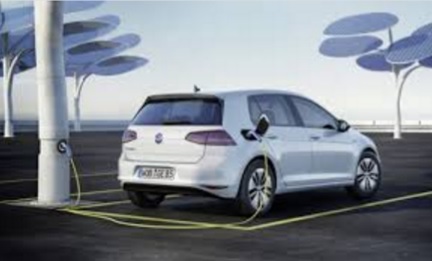 forecasting that electric cars will be reducing oil demand significantly by 2040. That comes from forecasts presented by OPEC, Exxon Mobil, and BP. OPEC quintupled its forecast for sales of plug-in sales, while Exxon Mobil, BP, and other oil producers also revised up their outlooks in the past year.
forecasting that electric cars will be reducing oil demand significantly by 2040. That comes from forecasts presented by OPEC, Exxon Mobil, and BP. OPEC quintupled its forecast for sales of plug-in sales, while Exxon Mobil, BP, and other oil producers also revised up their outlooks in the past year.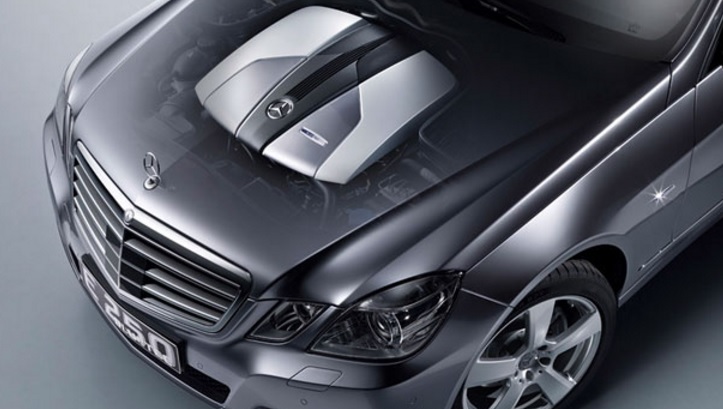 between 2008 and 2016 may have had emissions defeat devices, according to German newspaper Sueddeutsche Zeitung. In May, Daimler was subject to a search warrant granted by the District Court of Stuttgart that led to a raid and allegations made about the defeat devices. Engines used in the Mercedes C, E, G, R, ML, S, and CLS class models badged 320 and 350 Bluetec with 3.0-liter V6 engines are being investigated; Mercedes S 250 and E 300 Bluetec models in four-cylinder diesel 1.8 and 2.2 liter models; and diesel-powered Sprinter vans.
between 2008 and 2016 may have had emissions defeat devices, according to German newspaper Sueddeutsche Zeitung. In May, Daimler was subject to a search warrant granted by the District Court of Stuttgart that led to a raid and allegations made about the defeat devices. Engines used in the Mercedes C, E, G, R, ML, S, and CLS class models badged 320 and 350 Bluetec with 3.0-liter V6 engines are being investigated; Mercedes S 250 and E 300 Bluetec models in four-cylinder diesel 1.8 and 2.2 liter models; and diesel-powered Sprinter vans.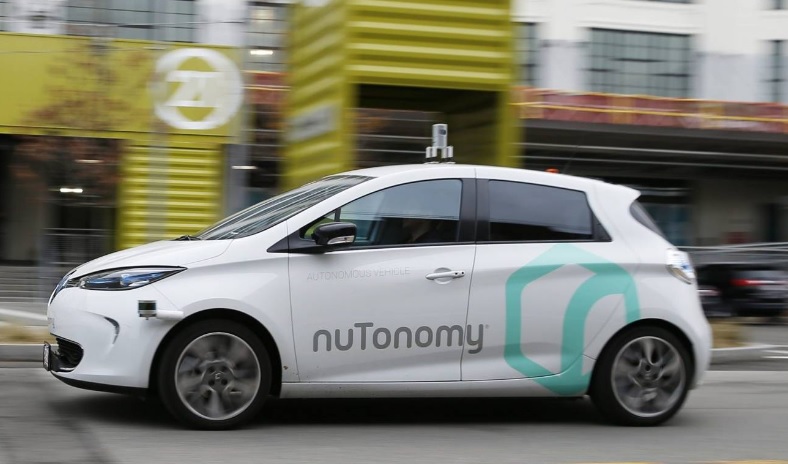 announcement to pull the U.S. out of the Paris climate agreement. It’s expected to reduce carbon emissions by at least five million tons by 2025. The electric cars will be powered by 100% renewable energy and it will all start with its nuTonomy vehicles coming out later this year in Boston. Lyft’s efforts will also be supported next year through a large test fleet of self-driving Chevy Bolts with its investor, General Motors. Lyft will be well positioned the three technologies that market analysts expect to shape the auto industry – electric, autonomous, and shared mobility services.
announcement to pull the U.S. out of the Paris climate agreement. It’s expected to reduce carbon emissions by at least five million tons by 2025. The electric cars will be powered by 100% renewable energy and it will all start with its nuTonomy vehicles coming out later this year in Boston. Lyft’s efforts will also be supported next year through a large test fleet of self-driving Chevy Bolts with its investor, General Motors. Lyft will be well positioned the three technologies that market analysts expect to shape the auto industry – electric, autonomous, and shared mobility services.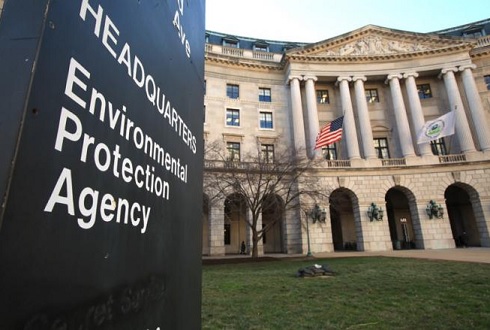 Automobiles was sued by EPA in May, accused of illegally using software to bypass emission controls in 104,000 diesel engine Ram pickups and Jeep Grand Cherokees sold since 2014. He doesn’t think the Obama administration was being too aggressive when taking action on emissions violations, and it’s the duty to EPA to enforce the rules. “Look what VW, and Fiat – you have this Fiat case that is on the horizon as well. The emails and the communications that I’m aware of – it was strategic and intentional and should be dealt with very aggressively,” Pruitt said.
Automobiles was sued by EPA in May, accused of illegally using software to bypass emission controls in 104,000 diesel engine Ram pickups and Jeep Grand Cherokees sold since 2014. He doesn’t think the Obama administration was being too aggressive when taking action on emissions violations, and it’s the duty to EPA to enforce the rules. “Look what VW, and Fiat – you have this Fiat case that is on the horizon as well. The emails and the communications that I’m aware of – it was strategic and intentional and should be dealt with very aggressively,” Pruitt said.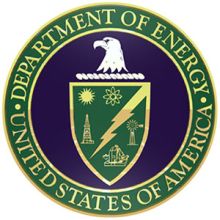 engine technologies, and energy efficient mobility systems. Mercedes Benz and General Motors are joining a long list of university research centers, including Lawrence Berkeley National Laboratory. Mercedes Benz is funding a project supporting solid state electrolyte membranes for high performance lithium-sulfur batteries; and GM is supporting research into pouch format cells for lithium-sulfur batteries to achieve high energy density and long cycle life.
engine technologies, and energy efficient mobility systems. Mercedes Benz and General Motors are joining a long list of university research centers, including Lawrence Berkeley National Laboratory. Mercedes Benz is funding a project supporting solid state electrolyte membranes for high performance lithium-sulfur batteries; and GM is supporting research into pouch format cells for lithium-sulfur batteries to achieve high energy density and long cycle life.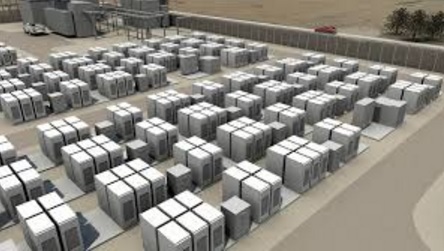 a tweet CEO Elon Musk made in March to back up South Australia with 100-megawatt-hour battery storage in 100 days or it would be free. That part of Australia has been devastated by power outages. It will be the largest lithium-ion battery storage project in the world, surpassing the second largest – an 80-MW facility in California – also supplied by Tesla Energy. Power will comes from a wind farm operated by France’s Neoen, and will be able to light up 30,000 homes in another blackout were to occur.
a tweet CEO Elon Musk made in March to back up South Australia with 100-megawatt-hour battery storage in 100 days or it would be free. That part of Australia has been devastated by power outages. It will be the largest lithium-ion battery storage project in the world, surpassing the second largest – an 80-MW facility in California – also supplied by Tesla Energy. Power will comes from a wind farm operated by France’s Neoen, and will be able to light up 30,000 homes in another blackout were to occur. House Budget for the next fiscal year wants to eliminate funds for Clean Cities as part of the proposed 73% cut to DOE’s overall Vehicle Technologies program. You can help save Clean Cities by adding your name to TEP’s national letter to the Congressional appropriations leaders. You’re also encourage to contact your Members of the House and Senate directly and urge them to protect funding for the DOE Clean Cities program.
House Budget for the next fiscal year wants to eliminate funds for Clean Cities as part of the proposed 73% cut to DOE’s overall Vehicle Technologies program. You can help save Clean Cities by adding your name to TEP’s national letter to the Congressional appropriations leaders. You’re also encourage to contact your Members of the House and Senate directly and urge them to protect funding for the DOE Clean Cities program. 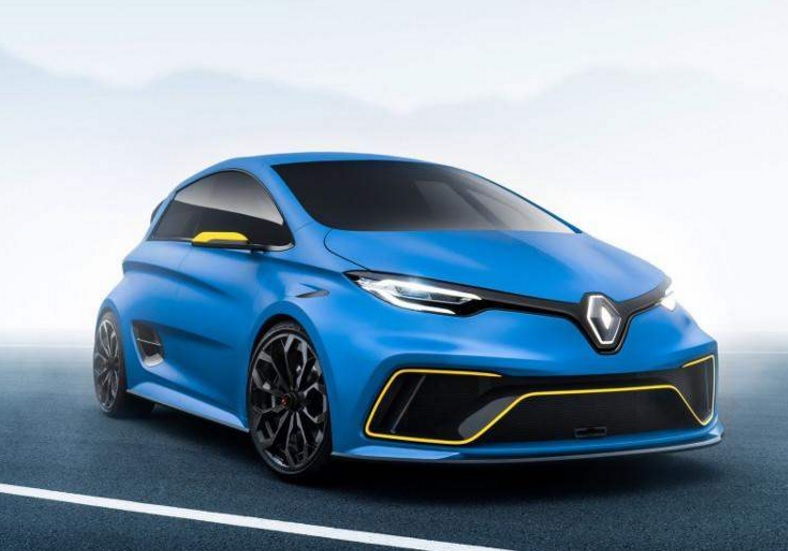 Trump has pulled the U.S. out of it. France aims to be carbon neutral by 2050 to honor the agreement. He acknowledged that stopping sales of fossil-fuel powered vehicles would be a “revolution,” solutions are available and French automakers would be up to the task. Typical to markets around the world, electrified vehicles only make for a small share of total vehicle sales. During the first half of this year, gasoline and diesel vehicles made for 95.2% of new vehicle sales in France; hybrids made up about 3.5% and plug-in electrified vehicles made up about 1.2% of the market. The Renault Zoe, seen in this image in its e-Sport Concept version, has been a top seller in France and throughout Europe.
Trump has pulled the U.S. out of it. France aims to be carbon neutral by 2050 to honor the agreement. He acknowledged that stopping sales of fossil-fuel powered vehicles would be a “revolution,” solutions are available and French automakers would be up to the task. Typical to markets around the world, electrified vehicles only make for a small share of total vehicle sales. During the first half of this year, gasoline and diesel vehicles made for 95.2% of new vehicle sales in France; hybrids made up about 3.5% and plug-in electrified vehicles made up about 1.2% of the market. The Renault Zoe, seen in this image in its e-Sport Concept version, has been a top seller in France and throughout Europe.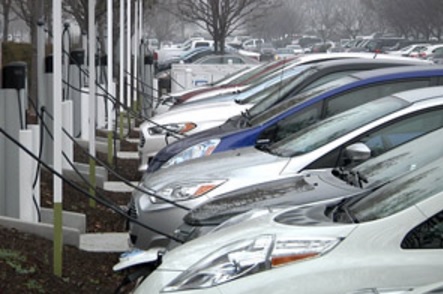 Virginia, Michigan, Minnesota, and California, have enacted new fees this year. Six other states have introduced legislation this year that would require PEV owners to pay a separate fee, including Indiana, South Carolina, Kansas, Tennessee, New Hampshire, and Montana. Vermont and Oregon are considering a fee based on vehicle miles traveled, rather than fuel type, but these rules may not pass through. PEV fees have been passed to pay for more transportation infrastructure upgrades, and to make up for lost tax revenue that PEV drivers don’t have to pay in gasoline and diesel taxes. Incentives are being added to get consumers to buy these cars, but the fees are mostly being charged on an annual, recurring basis.
Virginia, Michigan, Minnesota, and California, have enacted new fees this year. Six other states have introduced legislation this year that would require PEV owners to pay a separate fee, including Indiana, South Carolina, Kansas, Tennessee, New Hampshire, and Montana. Vermont and Oregon are considering a fee based on vehicle miles traveled, rather than fuel type, but these rules may not pass through. PEV fees have been passed to pay for more transportation infrastructure upgrades, and to make up for lost tax revenue that PEV drivers don’t have to pay in gasoline and diesel taxes. Incentives are being added to get consumers to buy these cars, but the fees are mostly being charged on an annual, recurring basis. 2019. Five all-electric models will come out between 2019 and 2021, three under the Volvo brand and two under Polestar. These five cars will also have other electrified options that may include gasoline and diesel plug-in hybrids and 48-volt options. The Polestar high-performance electric model was launched last month. The product changeover ties into the company’s commitment to minimizing its environmental impact and making the cities of the future cleaner.
2019. Five all-electric models will come out between 2019 and 2021, three under the Volvo brand and two under Polestar. These five cars will also have other electrified options that may include gasoline and diesel plug-in hybrids and 48-volt options. The Polestar high-performance electric model was launched last month. The product changeover ties into the company’s commitment to minimizing its environmental impact and making the cities of the future cleaner. according to a recent report to investors from analyst Alexander Potter of Piper Jaffray. Potter gave Allison Transmission Holding an “underweight” investment rating, advising investors to reduce their holdings in the company. Potter said that several companies, including engine maker Cummins and truck manufacturers Paccar, Navistar, and Scania, are investing in electric vehicle research and projects, potentially leaving Allison behind. While they’re still prototypes and pilot projects for now, the financial outlook will be affected for companies providing components to the industry, he said. Electric buses will provide some of the powertrain technology needed in heavy-duty trucks.
according to a recent report to investors from analyst Alexander Potter of Piper Jaffray. Potter gave Allison Transmission Holding an “underweight” investment rating, advising investors to reduce their holdings in the company. Potter said that several companies, including engine maker Cummins and truck manufacturers Paccar, Navistar, and Scania, are investing in electric vehicle research and projects, potentially leaving Allison behind. While they’re still prototypes and pilot projects for now, the financial outlook will be affected for companies providing components to the industry, he said. Electric buses will provide some of the powertrain technology needed in heavy-duty trucks. production model is expected to go off the line this Friday. The first 30 will be delivered to customers on July 28th at a handover party. Musk said the company expects the first 100 cars will be finished in August, and then the ramp up will start with 1,500 or more September. It’s looking like 20,000 per month can be built beginning December, he tweeted. The Model 3 is on track to break the company’s pattern of delaying production and delivery of the Model S and especially the Model X.
production model is expected to go off the line this Friday. The first 30 will be delivered to customers on July 28th at a handover party. Musk said the company expects the first 100 cars will be finished in August, and then the ramp up will start with 1,500 or more September. It’s looking like 20,000 per month can be built beginning December, he tweeted. The Model 3 is on track to break the company’s pattern of delaying production and delivery of the Model S and especially the Model X.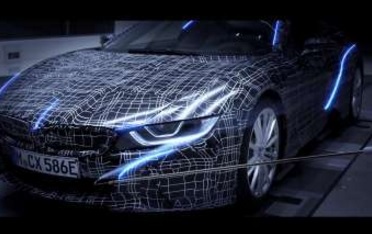 place, covered in camouflage, and being blown over in a wind tunnel. That suggests the i8 Roadster is moving forward in factory and road testing so that it can go to production level. It will be the third member of the i-Series vehicles, and BMW is expected announce the fourth member sometime this year. In May of last year, BMW’s chief Harald Kruger confirmed during a press conference in Munich that the i8 Roadster has been approved for production.
place, covered in camouflage, and being blown over in a wind tunnel. That suggests the i8 Roadster is moving forward in factory and road testing so that it can go to production level. It will be the third member of the i-Series vehicles, and BMW is expected announce the fourth member sometime this year. In May of last year, BMW’s chief Harald Kruger confirmed during a press conference in Munich that the i8 Roadster has been approved for production.